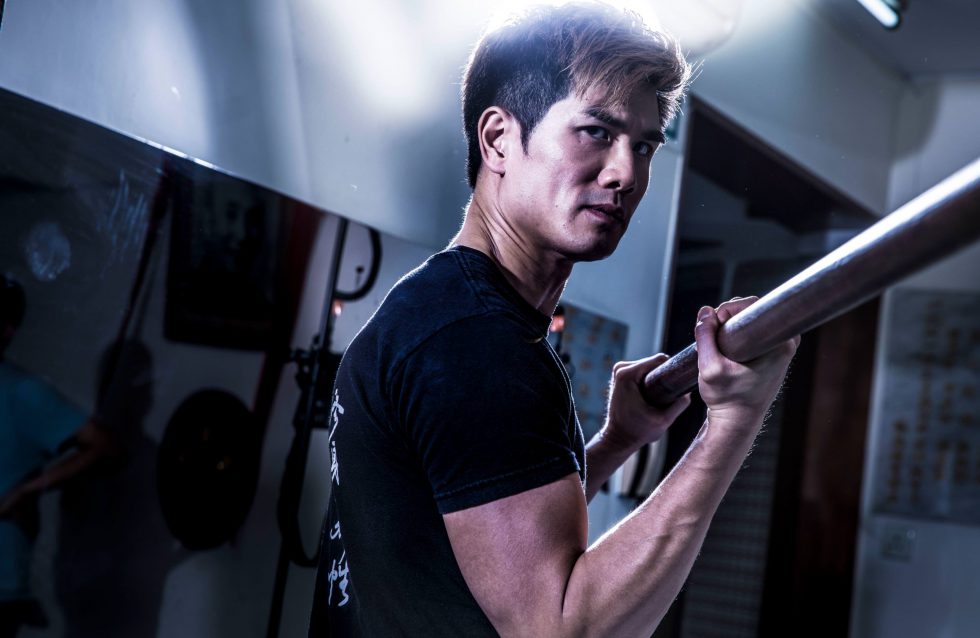
Филип Нг – американский актёр, родившийся в Гонконге, боец и хореограф. Он провёл большую часть своей юности в Чикаго, штат Иллинойс, а затем вернулся в Гонконг, чтобы начать карьеру кинобойца и постановщика боевых сцен в кино и на телевидении. Среди наиболее выдающихся его работ в Гонконге, такие картины, как: «Однажды в Шанхае», «Учитель против Вампиров», «Обнажённый Солдат», «Принцесса и семь мастеров кунг-фу», а также сериал «Кулак в четырёх стенах». Помимо этого он выступал в качестве постановщика боевых сцен в фильмах: «Бойцовский клуб зомби», «Молодые и опасные: Перезагрузка» и «Звёздный Бегун». А ещё он сыграл легендарного Брюса Ли в американском фильме «Рождение Дракона».
Когда ты начал практиковаться в боевых искусствах?
Филип Нг: Всё началось, когда я эмигрировал в США из Гонконга в возрасте семи лет. Как и многие новые иммигранты, мы жили всей большой семьёй в одном доме. Мы жили в доме моих дедушки и бабушки в пригороде Чикаго. Несколько моих дядей практиковали боевые искусства. Вначале, я думаю, это скорее было способом утихомирить меня. Знаешь, я был немного гиперактивен. У нас не было много денег, но зато имелся задний двор, там-то я и начал изучать кунг-фу.
Какие стили боевых искусств ты изучал?
Филип Нг: Я практиковал стили Хунга, Вин-Чунь и Чой Ли Фут с моим отцом и дядями. В основном это всё сводилось к выполнению форм. Это было хорошим упражнением. Но однажды, когда мне было лет 13, и я играл на детской площадке, какой-то парень ударил меня в грудь, после чего я упал на землю. Я помню это очень отчётливо. После этого я спросил себя - для какой, собственно, цели я занимаюсь? Многим людям, изучающим традиционные боевые искусства, даётся приложение и определённые стратегии, но на тренировках часто отсутствует прогрессия, которая позволяет человеку использовать весь набор навыков по их прямому назначению. Я думаю, многие современные школы кунг-фу часто пренебрегают этим аспектом обучения.
Поэтому я искал другие методы обучения, другие наборы навыков для дальнейшего вдохновения. Тогда, один из моих дядей, который изучал Вин-Чунь, посоветовал мне отправиться в Гонконг и поступить на обучение к Вонг Шун Луну, который сам в своё время учился у Брюса Ли, и был старшим учеником Ип Мана. Он ещё известен тем, что являлся «Королём говорящих рук», поэтому люди прозвали его Гонг Со Вонг. «Говорящие руки» - так называли бои один на один, которые часто проводились в то время. Самое главное, что я почерпнул из его занятий, это его подход к бою и практичность его подхода.
Боевые искусства всегда были окутаны завесой тайны, особенно когда я был моложе. Люди были совершенно сбиты с толку фильмами и книгами. Теперь же, с появлением ММА и Интернета, люди знают, как выглядит настоящая драка.
И так я каждый год стал летать в Гонконг, чтобы заниматься вместе с сифу Вонгом, пока он не скончался. В Америке я учился у своего отца, в основном стилю Чой Ли Фут. Я также получил чёрный пояс по тхэквондо, ещё я немного изучал дзюдо, джиу-джитсу, эскриму, тайский бокс, и даже занимался западным боксом, правда, на любительском уровне. Я изучал различные боевые искусства, потому что меня интересовали, прежде всего, навыки, которые я мог бы использовать. Я не видел смысла в банальном «собирании» форм.
Ты, наверное, пересмотрел уйму фильмов с боевыми искусствами, будучи подростком?
Филип Нг: Ну, ещё бы! В детстве мы с друзьями брали напрокат видеокассеты в китайском квартале. Так вот, копию «Пьяного Мастера» с Джеки Чаном, я пересматривал такое количество раз, что плёнка пришла в негодность. А ещё мой отец водил меня в кино, это одно из моих самых яркий воспоминаний, что впоследствии и вылилось в сильное желание с моей стороны добиться успеха в киноиндустрии. Всякий раз, когда мы смотрели фильм с боевыми искусствами, он узнавал каждого мастера в фильме! Не важно, играл ли он второстепенную роль, роль плохого парня, или же он появлялся всего в одной сцене. Он знал их всех поимённо, и мог сходу определить, насколько высоко их мастерство. Поэтому, после того, как я попал в индустрию, я был очень рад, что смог познакомить своего отца со многими из тех людей, чьи фильмы мы когда-то вместе смотрели, такими как Юэнь Бяо и Саммо Хунг. Я мог бы попробовать уговорить его сняться в одном из моих фильмов, но он очень застенчив. Может, когда-нибудь он решится.
Потом я с головой погрузился во всё это, стал изучать гонконгскую киноиндустрию. Мне были интересны не только мастера боевых искусств, но и каскадёры. Когда я был ребёнком, многие люди с упоением смотрели на мистических воинов, шаолиньских монахов, но моими героями были каскадёры. Они делали реальные вещи, без всего этого напускного мистицизма. Можно было своими глазами видеть то, что они делали, используя свои физические возможности.
Я восхищался этим ещё, будучи ребёнком, поэтому, когда я смог, наконец, перебраться в Гонконг и начал работать в киноиндустрии, мне казалось, что все в киноиндустрии Гонконга отлично знают кунг-фу. В итоге я заметил, что существует множество уровней мастерства, есть очень хорошие мастера, есть мастера среднего уровня. То ушедшее поколение, что мне удалось застать, состояло из первоклассных мастеров.
Но с популярностью MMA, я думаю, у людей снова появляется интерес к боевым искусствам. Только они изучают уже кикбоксинг, джиу-джитсу, но не традиционное кунг-фу. Я их понимаю, потому что часто китайские боевые искусства преподавались очень эзотерическим методом, а не кратким и научным. Вы не видите людей, стоящих в спаррингах, что в корне неправильно, поскольку я твёрдо верю, что кунг-фу было создано как раз для того, чтобы подготовить практикующего к реальному бою.
Как ты вообще попал в гонконгское кино?
Филип Нг: В США я поступил в университет и получил диплом магистра в области образования, потом год преподавал в школе. Но я всё равно твёрдо решил для себя, что отправлюсь в Гонконг летом. Через друга я смог получить очень маленькую роль в одном фильме, и что-то внутри меня загорелось. Я подумал тогда: «Наверное, не так уж это и сложно, это вполне осуществимо». Я рассчитывал, что добьюсь успеха в течение года. Но как только ты попадаешь в эту среду, то понимаешь, что для этого требуется куда больше времени и усилий. Ты либо отдаёшь всего себя, либо сдаёшься.
У каждого начинающего кинобойца есть мечта, именно поэтому столько людей приезжает в Гонконг. Но как только ты оказываешься здесь, то понимаешь, что это намного сложнее, чем ты думал вначале. Это тяжёлая борьба. Ведь помимо тебя, здесь ещё много людей, и все они хотят того же, чего и ты. Вот оно классическое противоречие: ты не можешь получить работу, не имея опыта за плечами, но ты не можешь получить опыт, если ты нигде не работал! Это требует настойчивости и удачи, но если ты твёрдо решил идти к своей цели, то понимаешь, что существуют определённые лазейки.
Мне повезло. Через мою церковную группу я познакомился с певцом и актёром Джо Таем. А он был в хороших дружеских отношениях с [легендарным координатором трюков] Чин Кар Локом, который занимался подготовкой фильма «Звёздный бегун». Им нужен был кто-то, кто знал стили Вин-Чунь и Хунга, для того, чтобы обучить актёров и поставить им хореографию. Я считаю это моей первой настоящей работой в кино. Я был тренером Ванесса Ву и Энди Она. Именно там мы познакомились и в итоге стали лучшими друзьями. Наша дружба длится уже более десяти лет.
Кто был первым из твоих киногероев, с которым тебе довелось поработать, и каково это было?
Филип Нг: Перед “Звёздным Бегуном” я мелькнул в “Эффекте Близнецов”, и мне удалось скрестить кулаки с Джеки Чаном. Это была всего одна сцена, но для мальчишки из Америки, который вырос, затирая до дыр кассету с “Пьяным Мастером”, это была мечта, ставшая реальностью. Встреча с кумирами – это всегда здорово, но это также должно подтолкнуть тебя к чему-то большему.
Не мог бы ты рассказать нам о своих грядущих проектах?
Филип Нг: У меня есть фильм под названием “Скрытый дракон атакует“, который предварительно планируется выпустить осенью. Я им очень горжусь. Я был одним из продюсеров, постановщиком боевых сцен и актёром, вместе с Энди и Ванессом. Мы старались изо всех сил, чтобы передать энергию и стиль гонконгских фильмов 80-х, 90-х, не только в плане экшна, но и в плане комедии.
Я помню, как во время съёмок «Звёздного бегуна» в 2002 году, мы втроём сидели в забегаловке в местечке Лау Он Пай, уплетали свои порции риса, и всё размышляли, где мы будем лет, эдак, через десять. Ванесс был на пороге славы со своей поп-группой F4, а Энди был новой восходящей звездой (который выиграл гонконгскую кинопремию в номинации прорыв года как раз за эту роль). Это был первый фильм Ванесса, и он играл главную роль. Это было первым серьёзным опытом в кино для всех нас. Более десяти лет спустя мы все собрались вместе и сделали “Скрытый дракон атакует”. Некоторые сцены этого фильма были сняты как раз в Лау Он Пай. Было здорово снова собраться втроём на том же самом месте.
Помимо этого у меня есть ещё один фильм под названием “Цвет Игры”. Я был постановщиком боевых сцен и исполнителем одной из главных ролей вместе с Саймоном Ямом и Джорданом Чаном. Это забавный, очень хорошо сложенный гангстерский фильм. Он должен выйти к концу года. Я также засветился в фильме с Донни Йеном «В погоне за Драконами», и мне посчастливилось «скрестить кулаки» с ещё одним из моих кумиров, так что я был очень взволнован.
Каково было играть Брюса Ли?
Филип Нг: Это было чем-то нереальным. Я прочитал всё, что писал Брюс Ли, изучал его фильмы, его идеи о боевых искусствах, его философию. Когда я приступил к съёмкам “Рождения Дракона”, они спросили меня, как долго я готовился к роли, на что я ответил: «Да практически всю свою жизнь!» Все подражают Брюсу Ли в каком-то смысле. Когда ты играешь персонажа, ты изучаешь его, чтобы лучше изобразить его на экране. Я читал, смотрел и думал о Брюсе Ли сколько себя помню. Его философия в равной степени повлияла как на моё мышление, так и на мои методы тренировок. Так что на самом деле изобразить его было просто чем-то запредельным.
Вообще забавно то, как я получил эту роль. Они прослушивали много разных людей, и одним из них был Энди Он. В общем, он сказал им: “Я не похож на Брюса Ли, но у меня есть друг, который на него похож”, и отправил им мой материал, затем они сказали: «Да, пусть он сделает запись». Так что он, его невеста, ещё один друг, и я провели несколько часов, снимая сцены для этого прослушивания. Я отправил им запись и больше не вспоминал об этом. В киноиндустрии прослушивания проходят постоянно, и это ведь фильм о Брюсе Ли, в конце концов! Каковы были шансы, что я вообще получу эту роль!? Но режиссёру очень понравилось моё выступление, и в итоге меня утвердили на роль.
Так что, я закончил снимать “Кулак в четырёх стенах” в Гонконге 4 ноября 2015, а уже шестого числа прилетел в Ванкувер, чтобы приступить к съёмкам «Рождения Дракона». Мне доводилось слышать много историй о работе в Голливуде от моих старших учеников из каскадёрской тусовки. И все эти истории были правдой. Это был замечательный опыт! Потом я, уже, будучи на съёмках этого фильма, рассказывал своим коллегам по съёмочной площадке о работе в Гонконге, например, о моём графике, или о том, как мне порой приходилось работать со сломанной рукой или треснувшими рёбрами, а они думали, что я приукрашиваю или пытаюсь набить себе цену.
Самым худшим во время съёмок «Рождения Дракона» было то, что на площадке всегда была еда. Много вкусной еды, особенно пончиков. А мне нельзя их есть, я же играю Брюса Ли! Мои ученики приходили на съёмочную площадку и так аппетитно ели эти пончики прямо у меня перед глазами.
У меня была сцена; это было прямо перед рождественским перерывом, в которой мне нужно было снять рубашку. Сразу после этого визажист отправился в сервис обслуживания и принёс мне три пончика. И я тут же погнался за ними, как бык за красной тряпкой.
У меня также появилась возможность поставить одну сцену в фильме. Сам я не принимал в ней участия. Она была снята в Китае. Поскольку график нашего режиссёра-постановщика Кори Юэня был полностью забит, у него не было времени заняться этим лично. Но он достаточно доверял мне в этом вопросе. Работа над фильмом стала для меня отличным опытом, и я очень рад этому. Мы все гордимся проделанной работой.
А когда ты сам начал ставить боевые сцены в кино?
Филип Нг: После того, как я был принят в каскадёрскую команду Чин Кар Лока, я вплотную занялся постановкой боевых сцен в фильме “Звёздный Бегун” - моём первом проекте в гонконгской киноиндустрии. Я знал боевые искусства, но были и другие технические тонкости, которые мне необходимо было освоить, что я и сделал. Я всё схватываю на лету, так что я поставил много боевых сцен в этом фильме. Оглядываясь назад, я понимаю, как мне повезло, что они так быстро доверили мне такую ответственную работу. Я быстро заслужил авторитет, и смог узнать больше нюансов в этом ремесле.
Но я также много работал над фильмом. Я редко прохлаждался, находясь на съёмочной площадке. Я всё время смотрел по сторонам и задавал вопросы. Когда дело доходило до монтажа, я отправлялся прямиком в монтажную, смотрел и учился, а иногда помогал, если нужно было вспомнить, в каком месте был тот или иной кадр. Я садился рядом с монтажёром, задавал вопросы, и попутно делал для себя какие-то заметки. По мере того, как технологии совершенствовались, я стал понемногу сам учиться монтировать видео, работая с компьютером и кое-каким ранним программным обеспечением, необходимым для этого.
Моя задача как хореографа и постановщика боевых сцен, состоит в том, чтобы помочь режиссёру рассказать историю. Поэтому, если история требует эффекта дрожащей камеры или каких-то других хитростей, которые помогут лучше передать настроение отдельной сцены, у меня есть необходимые для этого технические примочки. Очевидно, у меня есть определённые предпочтения в отношении того, что мне нравится делать, и основаны они на ярких впечатлениях из детства. Я просто обожал гонконгские фильмы 80-х, 90-х с такими актёрами, как: Джеки Чан, Юэнь Бяо, Саммо Хунг, Донни Йен, Джет Ли, и Юэнь Ву Пин, среди прочих.
Эти фильмы оказывали большое влияние на меня, когда я был молод. Создание фильмов – это форма искусства, своего рода самовыражение. И зачастую моя работа является выражением того волнения, удовольствия и трепета, что я испытывал, будучи ребёнком, смотря те фильмы, которые произвели на меня такое сильное впечатление.
С кем тебе понравилось работать больше всего?
Филип Нг: Да со всеми! У них у всех есть, чему поучиться, и я смог почерпнуть что-то для себя от каждого хореографа и постановщика. Слишком много имён, чтобы называть все, но позвольте мне упомянуть некоторых из них. Юэнь Ву Пин – вне всякого сомнения, мастер своего дела. Когда он был утверждён на роль хореографа в фильме «Однажды в Шанхае», для меня это была мечта, ставшая реальностью. Само собой, я был рад возможности поработать с ним. Ведь это он ставил бои в “Матрице”! Он настолько мастеровитый и при этом очень дотошен в мелочах, таких как «правила камеры» касательно постановки кадра и монтажа, потому что иногда, если эти вещи сделаны неправильно, они могут нарушить динамику всей сцены и вызвать у зрителей чувство дискомфорта.
Иногда вы можете нарушать эти правила, чтобы сделать монтаж более внятным. Так, во время съёмок «Однажды в Шанхае» режиссёр, парень ответственный за спецэффекты и я, все мы, работая над монтажом, хотели показать определённый удар под определённым углом. Юэнь Ву Пин подумал секунд десять. Наступила тишина. Затем он предложил сделать всё по-другому, и когда мы сняли эту версию вместе, она получилась лучше. Такие вещи приходят из опыта. Этому не учат в школе. Один из плюсов моей жизни на Западе, заключается в том, что я не боюсь говорить и задавать вопросы, поэтому я многому научился у людей, с которыми мне довелось работать. Просто будь вежлив и в 90% случаев люди ответят на все твои вопросы.
Ещё я не могу не упомянуть Стивена Тунг Вея, актёра и режиссёра, который снимал “Убийцу” с Джетом Ли. Я очень уважаю его, как на личном, так и на профессиональном уровне. Он очень требователен на съёмочной площадке, но это потому, что он заботится о твоей безопасности, и в то же время хочет, чтобы всё выглядело как надо. Он выручал меня не один раз, и вообще многому научил меня в плане хореографии и постановки кадра, и некоторые экшн-сцены от этого только выиграли. Он оказался очень бескорыстным человеком. Вообще, было так много людей, у которых я научился чему-то, пусть даже полученный опыт и не всегда был нужен мне в дальнейшем, но всё же в большинстве случаев все эти навыки мне пригодились.
С кем бы ты хотел поработать?
Филип Нг: С Джетом Ли. Я уже поработал со всеми кумирами моего детства, кроме него! Просто так получилось, что я пришёл в индустрию как раз в то время, когда он уже не снимался так активно, особенно в Азии. Я работал с Джеки Чаном, я работал с Юэнем Бяо, с которым мы, кстати, очень сдружились, что просто невероятно! Я работал с Саммо Хунгом, недавно вот поработал с Донни Йеном, да со всеми людьми, на чьих фильмах я вырос.
Как актёр жанра экшн ты стараешься сохранять баланс между риском и безопасностью?
Филип Нг: Я бы не сказал. Понятно, что ты подходишь к выполнению трюка с максимальной ответственностью, но ты всё равно рискуешь. Вот почему это называется трюком. Ты просто готовишься как можно лучше. Мало кто получает травмы, делая большие трюки. Чаще всего люди травмируются, делая что-то незначительное, потому что относятся к этому легкомысленно. Например, если мне придётся перепрыгнуть через стол, я подумаю «раз плюнуть», но обычно именно в этом месте ты подворачиваешь ногу и приземляешься на лицо. Другое дело, если тебе, скажем, нужно спрыгнуть с 10-этажного здания, здесь обычно всё тщательно готовится, и все очень осторожны. Нужно всё это учитывать при выполнении каждого трюка, что я и пытаюсь делать.
И когда я выступаю в роли хореографа и координатора трюков на съёмочной площадке, я всё стараюсь держать под контролем, и слежу за тем, чтобы все были в безопасности, потому что площадка - очень опасное место. Как экшн-актёр, я должен быть осторожным, потому что большая часть декораций очень хрупка и держится практически на одних гвоздях. Всё настолько безопасно, насколько возможно, но многие вещи легко разрушаемы. Ты просто должен быть осторожным и всегда заботиться о своём окружении.
Во время съёмок фильма “Скрытый дракон атакует”, Энди Он сломал мне два ребра, ещё я вывихнул коленную чашечку, мне также наложили несколько швов под глазом. Я чуть было не ослеп. Ты надеешься, что этого не произойдет, но от ушибов и синяков никто не застрахован. Мне приходится прыгать через лобовые стёкла машин и быть сбитым автомобилями, но мой опыт и опыт окружающих меня людей помогает мне делать всё, что в моих силах, чтобы оставаться в безопасности настолько, насколько это возможно. Но в профессии каскадёра безопасность всегда является понятием относительным!
Технологии сделали трюки не только безопаснее, но и лучше. Компьютерная графика теперь намного лучше стирает тросы, поэтому можно использовать более толстые тросы или даже скалолазные канаты. Это делает трюки безопаснее. Конечно, они по-прежнему опасны, но уже не так безрассудны, как раньше.
Я думаю, людям нравится смотреть экшн-фильмы, потому что им интересно наблюдать за реальными людьми, демонстрирующими свои реальные способности с минимумом спецэффектов.
Думаю, фанаты фильмов старой школы это ценят, да и массовая аудитория тоже. Но очень немногие люди готовы выполнять подобные трюки. Некоторые из тех старых трюков были такими захватывающими отчасти ещё и потому что они были не просто опасны, они были безумны. Так что, сегодня трюки стали безопаснее и люди подходят к их выполнению с умом, но это понятно. Продюсеры понимают, что если их звезда пострадает, то производство придётся остановить. А стоимость фильма составляет миллионы долларов.
Так что, если вы не каскадёр, и если вы не актёр, который действительно может выполнять свои собственные трюки, я бы не советовал вам этого делать. Пусть лучше каскадёры выполняют свою работу. С другой стороны, если вы каскадёр и актёр, вы делаете столько, сколько можете, когда это необходимо.
Официальный источник: www.jetli.com
Опубликовано: август 2017
Перевод: Black Dragon
Метки: Birth of the Dragon, Chasing the Dragon, Ванесс У, Филип Нг, Энди Он



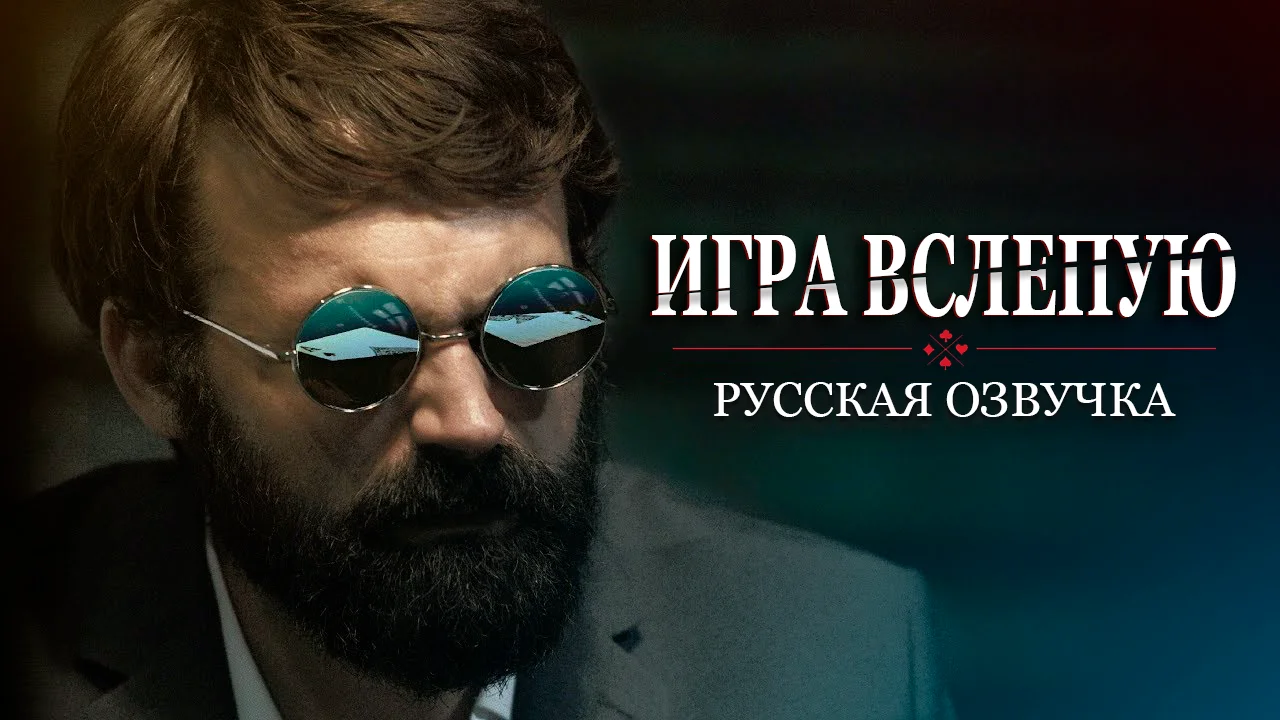
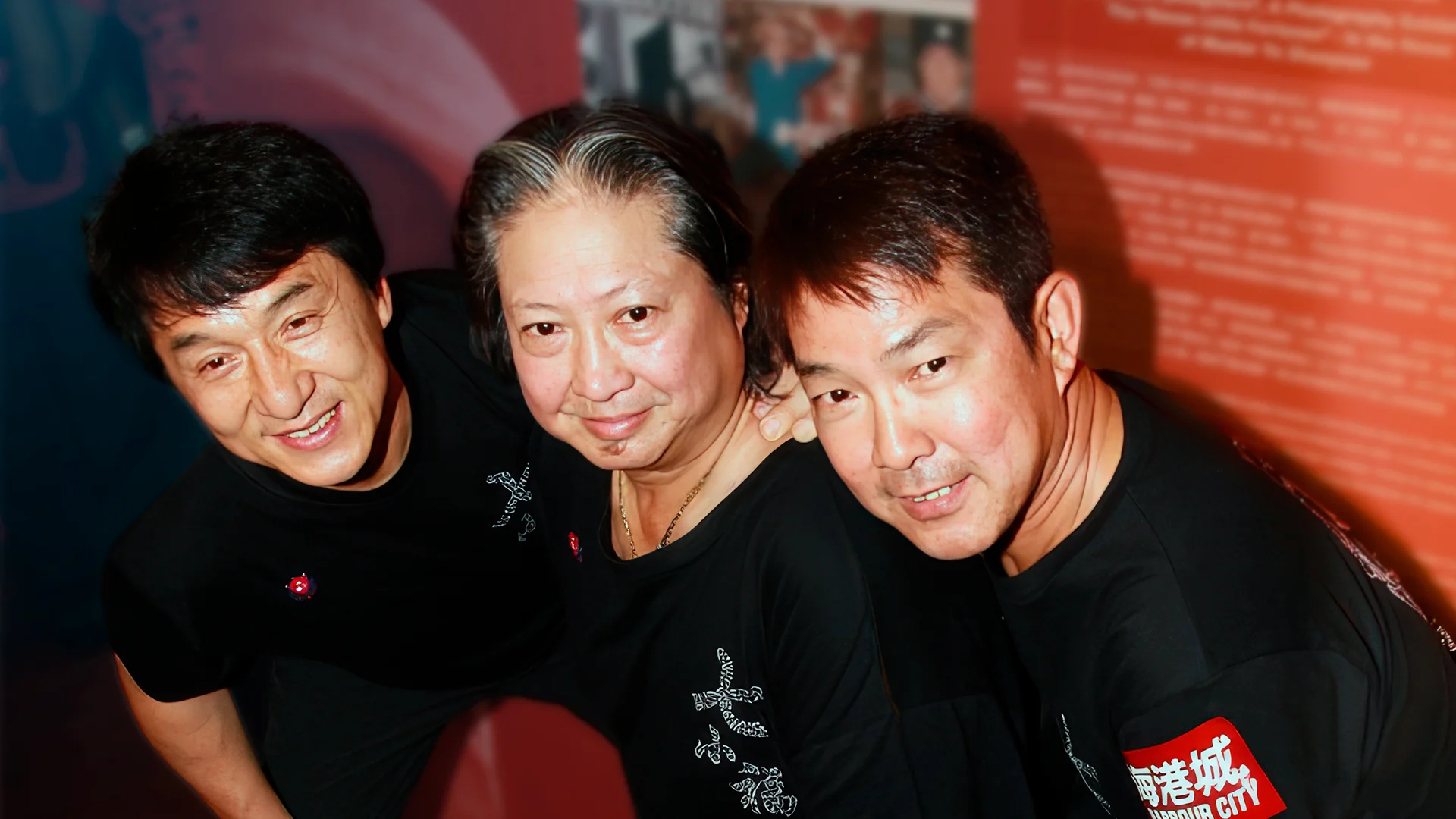
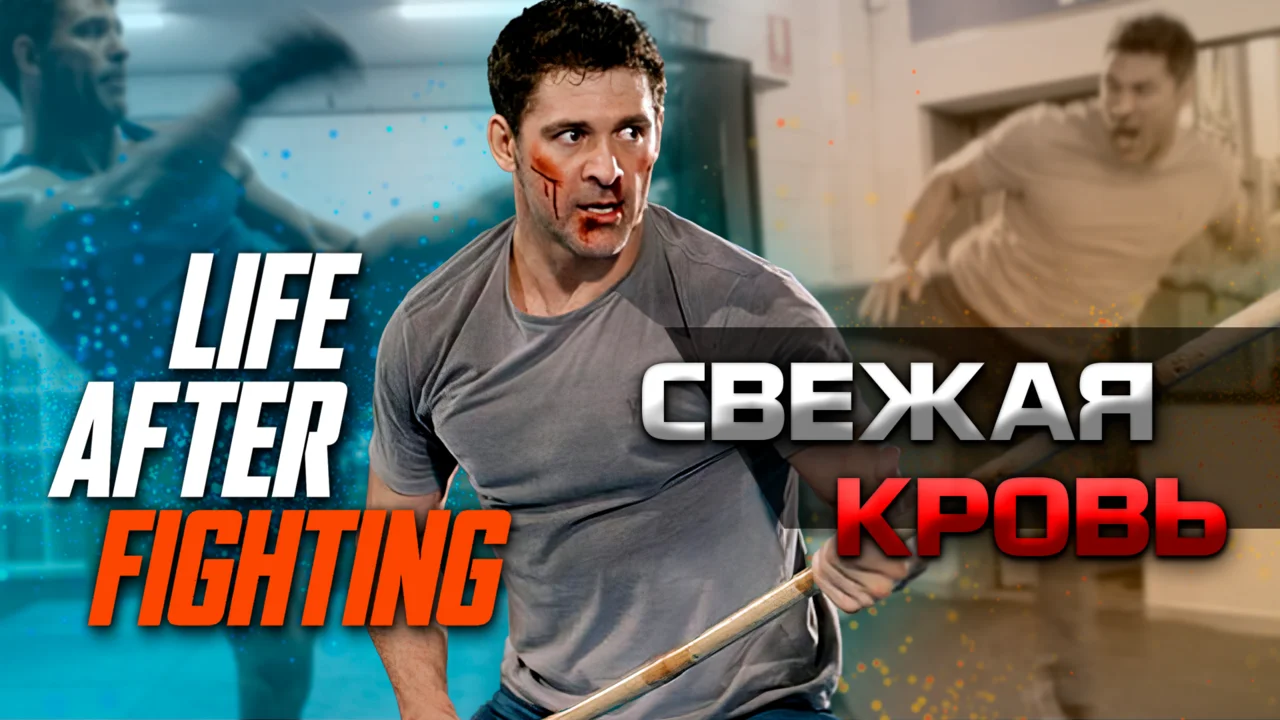
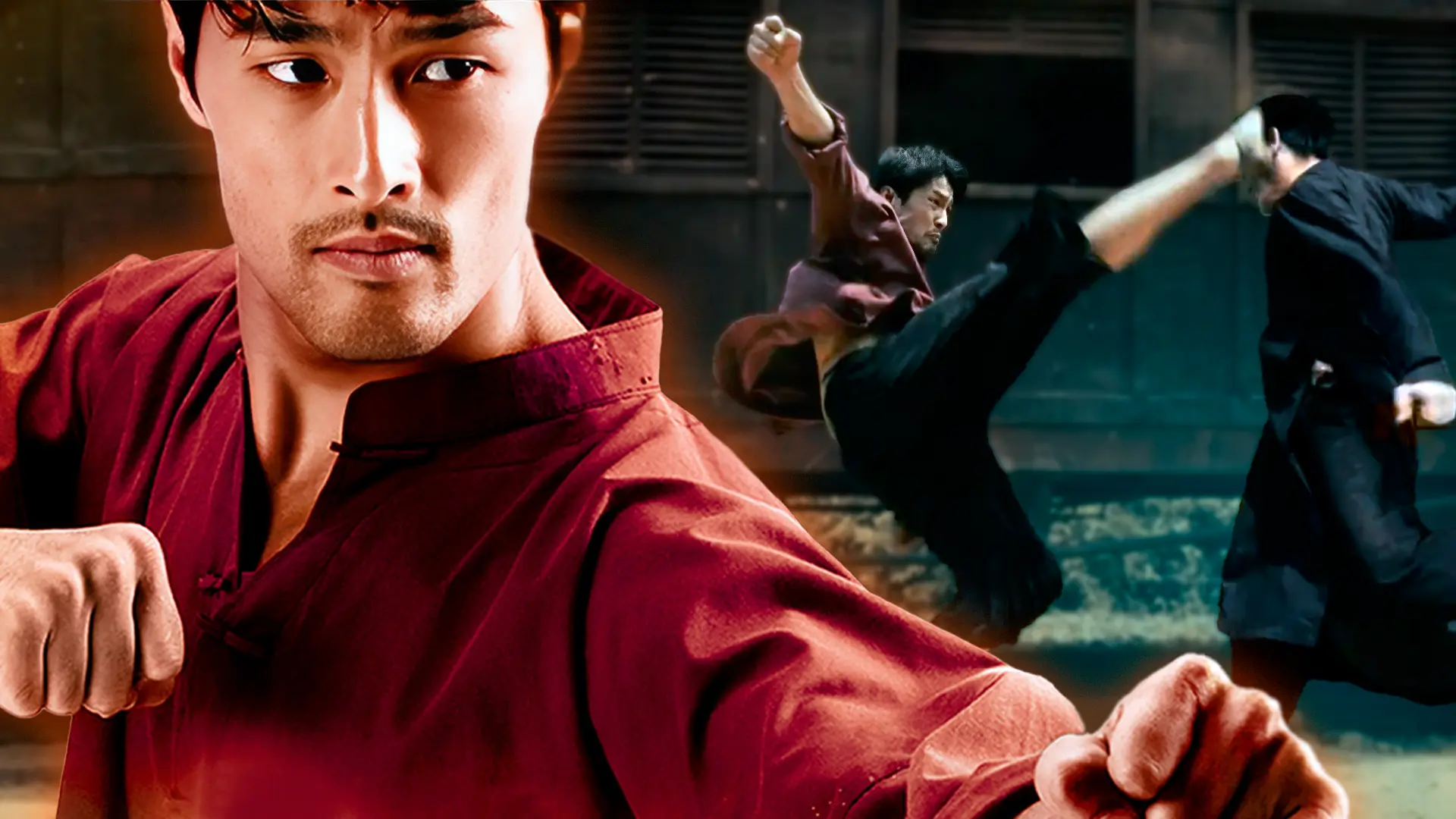
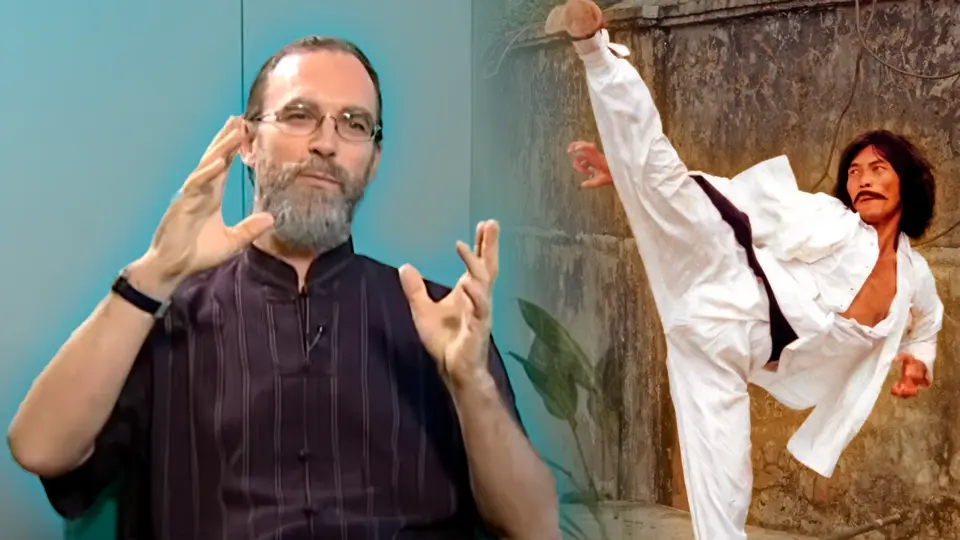
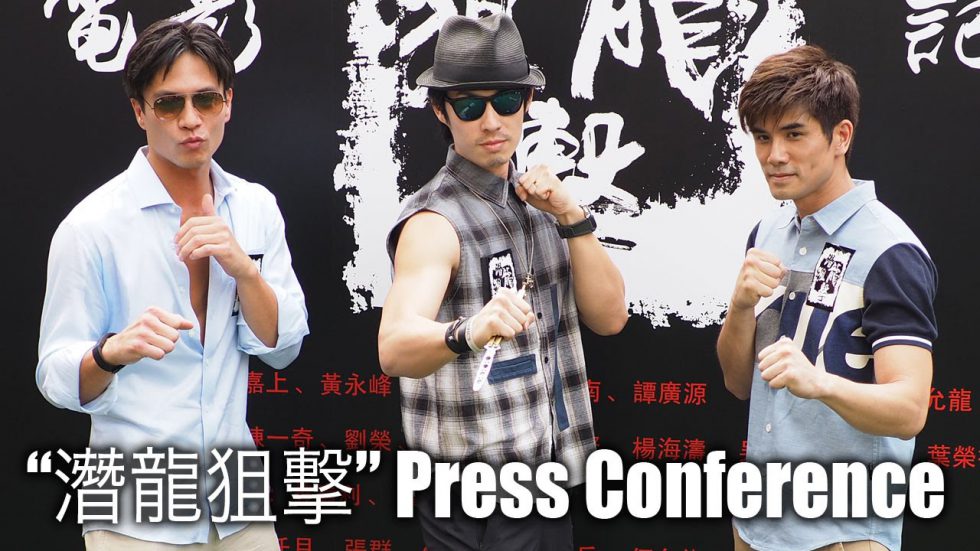
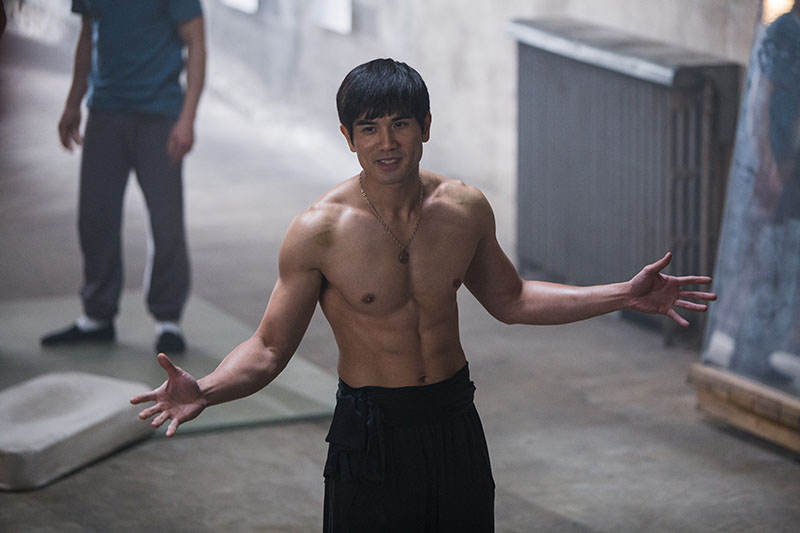
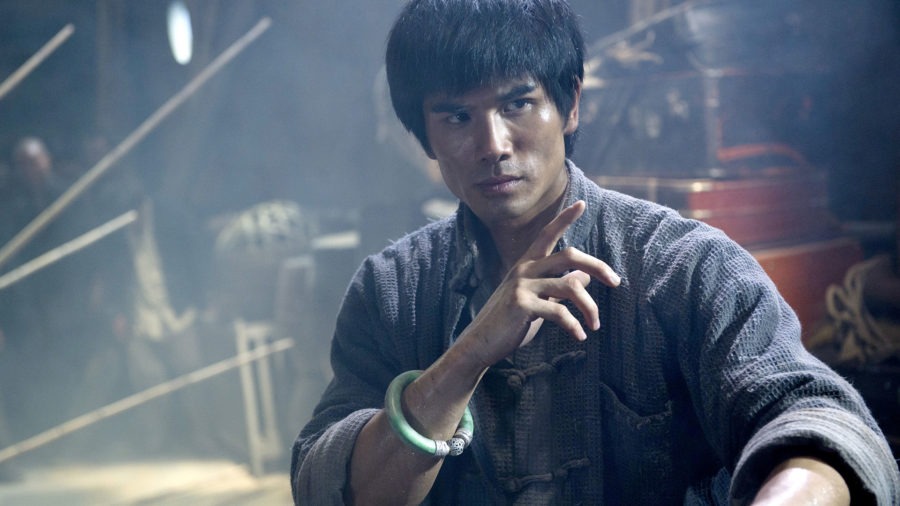
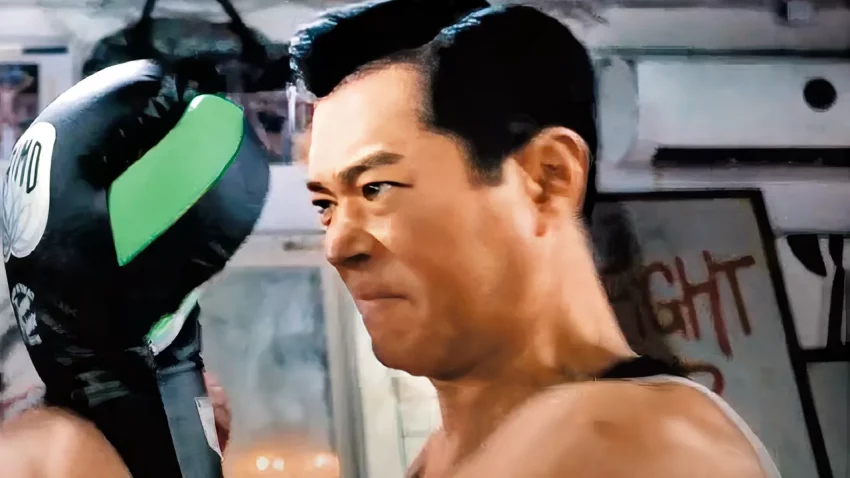
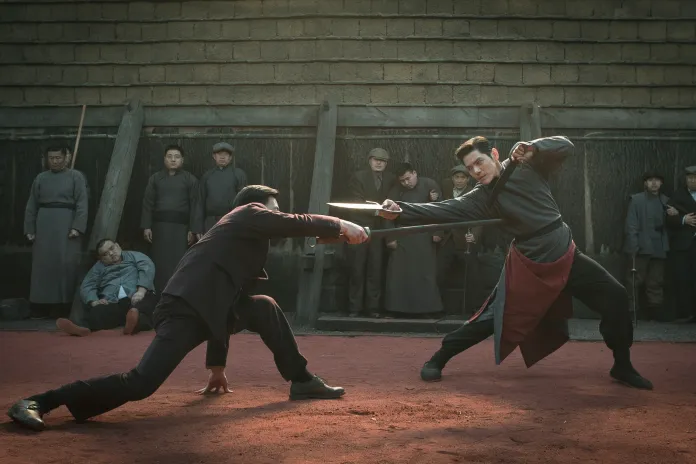
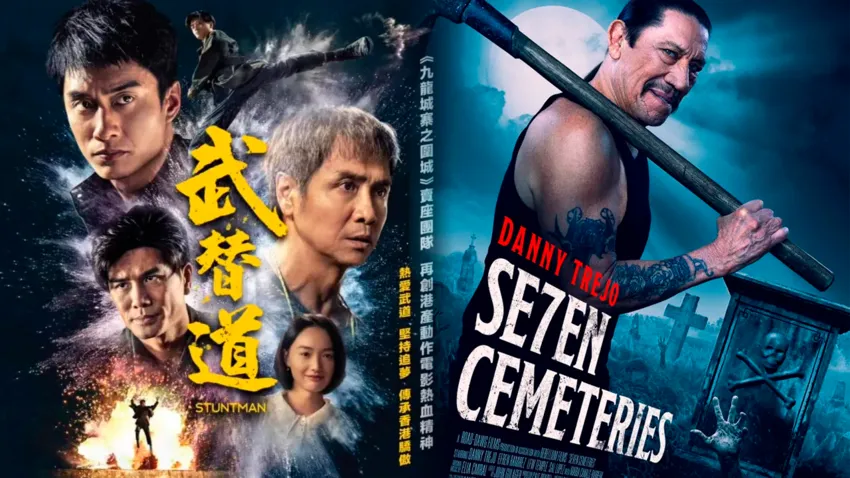
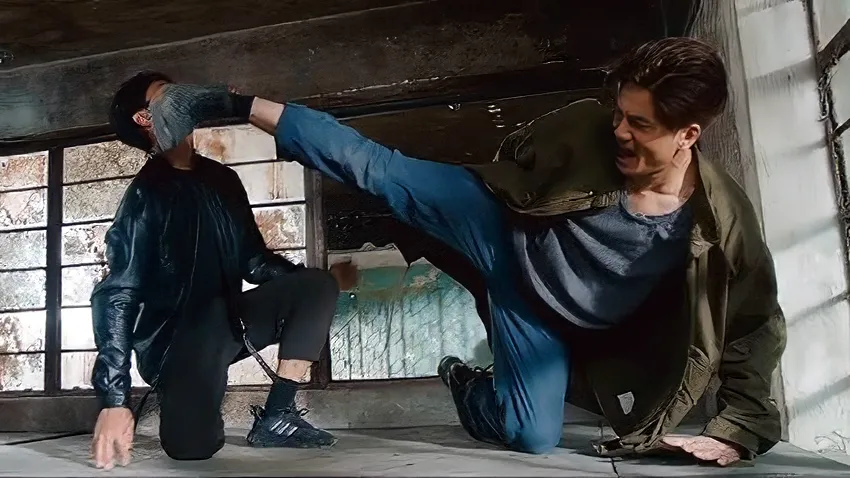
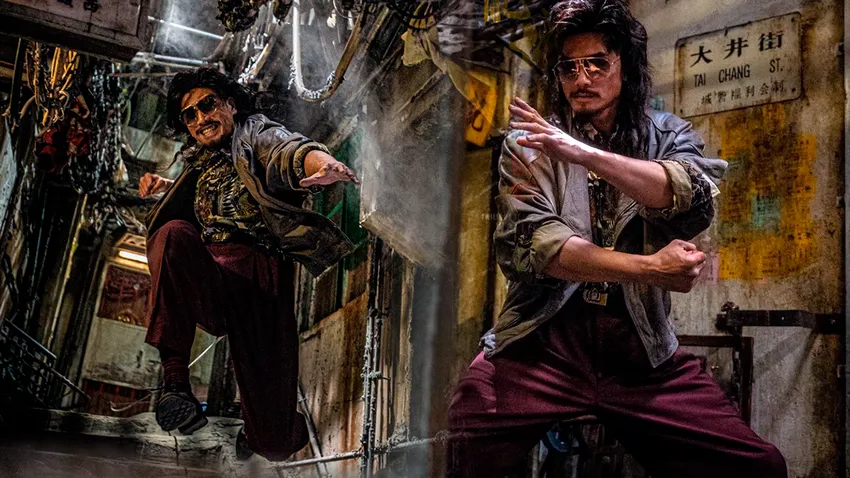
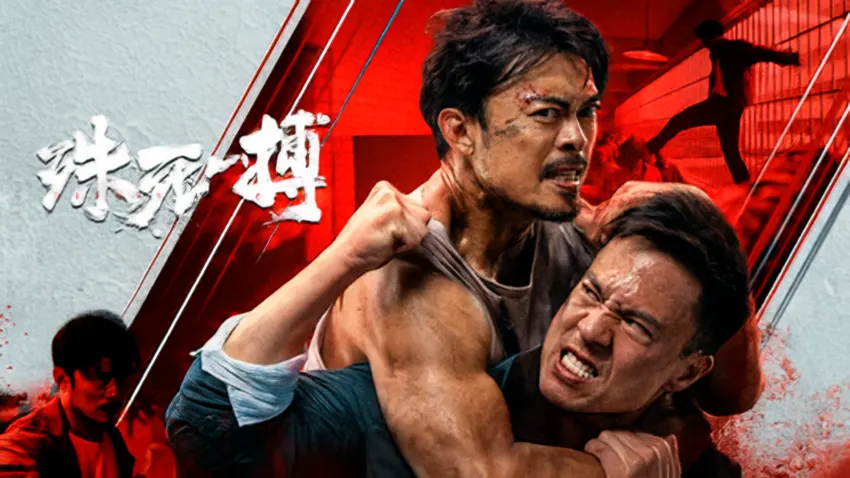
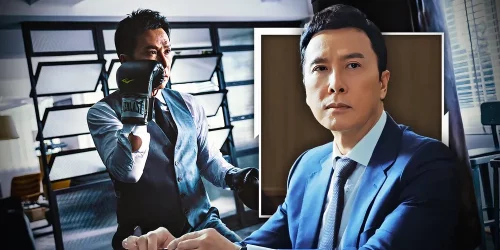
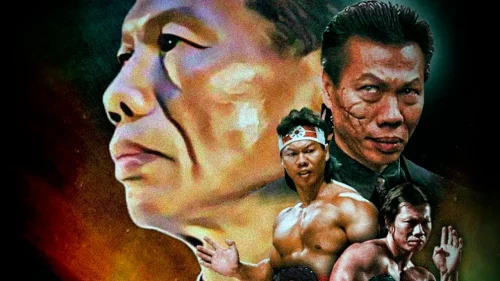
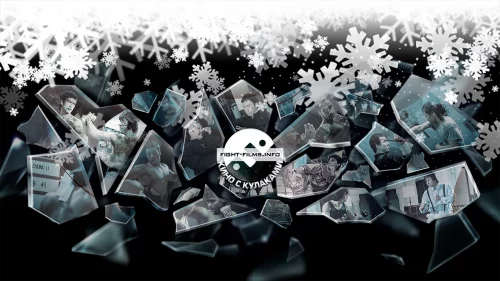
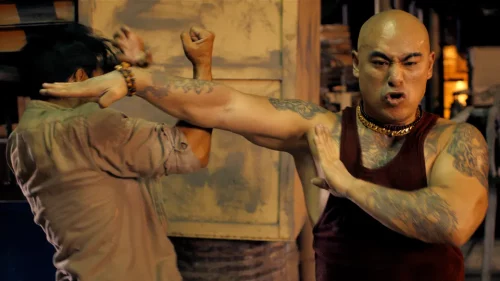
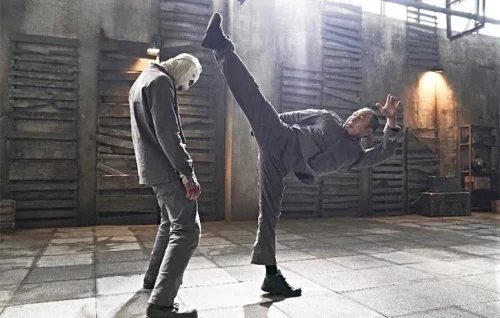
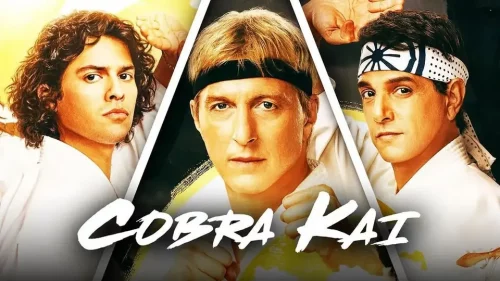
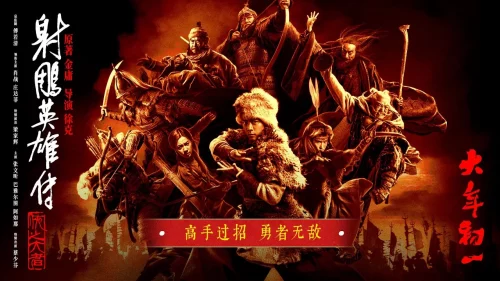
Спасибо за статью. Для меня Нг - один из самых интересных молодых актеров-рукопашников последнего времени.
Lee,
Пожалуйста. Кстати, "Брюс Ли: Рождение Дракона" вполне себе хороший фильм. Мне понравился, хоть его и хейтили все, кому не лень, как только трейлеры стали выходить.
Странно, пропал куда-то мой коммент... я там писал про небольшую ошибку, допущенную мной в переводе.
Black Dragon,
Вроде ничего не удаляли из публикации.
Данил Чупахин,
Значит, какой-то технический сбой произошёл. Бывает. Да в общем ошибка не значительная. Но всё равно, думаю важно подчеркнуть, что мастер Вонг Шун Лун не был учеником Брюса Ли, а наоборот помогал тому с тренировками, когда они вместе учились у Ип Мана. К сожалению, ошибку заметил уже после публикации.
По моему называть Нг американским актёром не совсем корректно. Если не ошибаюсь, он не снялся не в одном американском фильме, начал в Гонконге каскадером, где и делает относительно успешную карьеру